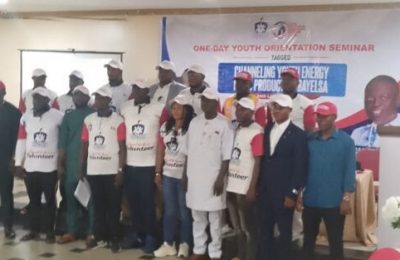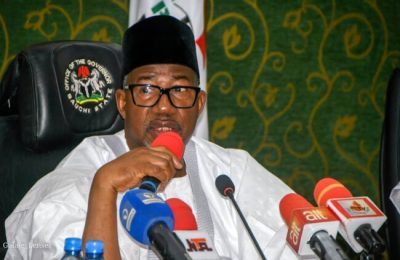
SUNDAY EJIKE chronicles major events and rulings that shaped the Judiciary last year.
Something unprecedented happened in the nation’s judicial arm of government in the year 2022. It was the controversial resignation on health ground of the then Chief Justice of Nigeria (CJN), Justice Ibrahim Tanko Muhammad, who was the head of the arm of government. The letter of resignation of Justice Muhammad, who was sworn-in as CJN in acting capacity in January, 2019 after the exit of Justice Walter Onnoghen, was addressed to President Muhammadu Buhari.

Even though Justice Muhammad’s resignation was on health grounds, it was however alleged, that he resigned amid corruption allegations levelled against him as fourteen Justices of the Supreme Court had, in a protest memo, accused him of not giving them, their legitimate entitlements.
He told his brother Justices in his response that the apex court was cash-strapped and could not grant their requests, adding that, the court, like any other establishment in the country, was hit by a devastating economic crunch.
With the resignation of Justice Muhammad, President Buhari swore in Justice Olukayode Ariwoola on October 12, 2022 as substantive Chief Justice of Nigeria.
A major landmark judgement that opened the new year, was the judgement of an Ikeja High Court sitting in Lagos, which sentenced kidnap kingpin, Chukwudumeme Onwuamadike, popularly known as Evans, to life imprisonment for the kidnap of Donatus Dunu, the Chief Executive Officer of Maydon Pharmaceuticals Ltd. February last year, Justice Hakeem Oshodi, also sentenced Evans’s two co-defendants, Uche Amadi and Okwuchukwu Nwachukwu, to life imprisonment for the same offences.
The judge, however, discharged and acquitted their co-defendants, Ogechi Uchechukwu; Chilaka Ifeanyi, an ex-soldier; and Victor Aduba, also an ex-soldier on the ground that there was no evidence linking them to the crimes.
Sentencing the convicts, Justice Oshodi said that they did not show any remorse for their crimes and had tried to “lie their way out of the charges” during the trial, adding that the Kidnapping Prohibition Law of Lagos State prescribed a mandatory life sentence for any individual found guilty of kidnapping.
“A lesson must be taught. In this respect, the law is the law that must be upheld. The first, second and fourth defendants- Chukwudumeme Onwuamadike a.k.a Evans, Uche Amadi and Okwuchukwu Nwachukwu, are each hereby sentenced to life imprisonment”, the Judge held.
22 political parties sent packing
Another significant decision was the judgement of the Supreme Court, delivered in March, 2022, which upheld the de-registration of 22 political parties by the Independent National Electoral Commission (INEC).
INEC had deregistered some parties in February 2020 for “failing to meet the criteria provided for, by section 225(a) of the 1999 constitution (as amended)”.
Some of the parties jointly filed a suit marked FHC/ABJ/CS/444/2019, asking the court to determine whether INEC has the constitutional power to deregister them.
Earlier in June, Justice Anwuli Chikere of a federal high court in Abuja, agreed with INEC and dismissed the suit on the grounds that the plaintiffs failed to prove their case, a judgement that was later overturned by the Court of Appeal, Abuja Division.
However, the apex court in its judgement in the matter, reinstated the decision of the trial court.
Umahi, Amaechi favoured
In March, last year, Justice Inyang Ekwo of the Federal High Court, Abuja, ordered the removal of David Umahi and Eric Kelechi Igwe, as governor and deputy governor of Ebonyi State, following their defection from the Peoples Democratic Party (PDP) to the All Progressives Congress (APC).
Umahi left the PDP in November 2020, attributing the action to the “injustice” done to the South-East.
This development made the PDP to file a suit against the governor, his deputy, the APC and INEC and the trial Judge held in his judgement, described by many as landmark, that the 393,042 votes polled by Umahi in the March 9, 2019 governorship election belonged to the PDP and cannot be legally transferred to the APC.
The judgment was, however, annulled by the Court of Appeal in October.
On May 27, the Supreme Court dismissed an appeal by a former Minister of Transportation, Rotimi Amaechi, seeking to stop a probe into an alleged N96 billion fraud.
Governor of Rivers State, Nyesom Wike, had set up a seven-man panel to probe Amaechi over the alleged withdrawal of N96 billion from the state’s treasury during his tenure as governor.
Amaechi had prayed the apex court to stop Wike from investigating his eight-year tenure as governor on the ground that it was aimed at witch-hunting, embarrassing, and humiliating him in view of his political differences with Wike.
Delivering judgment, a seven-member panel of Justices of the apex court dismissed the appeal for lacking in merit as Amaechi is neither on trial nor indicted for the alleged offence.
Buhari, Malami lost Electoral Act challenge
Late June last year, the Supreme Court held in a judgement that the request by President Buhari to the National Assembly to delete Section 84(12) of Electoral Act amounted to a constitutional violation and struck out a suit filed by the President and his Attorney-General of the Federation, Abubakar Malami, challenging the controversial section 84(12) of the Electoral Act.
A seven-member panel of the court, led by Musa Dattijo-Muhammad, unanimously struck out the suit, describing it as an abuse of court process.
The court held that Buhari, having earlier assented to section 84 (12) of the Electoral Act 2022, could not turn around to approach the court to strike it down.
“There is no provision in the constitution that vests the president the power to challenge the constitutionaility or desirability of a legislation after he has assented or denied his assent. In this case, the president gave his assent,” the court held.
The hijab controversy
The judgement on the use of Hijab in schools was also another remarkable judgement in the year under review.
It would be recalled that, in October 2014, a High Court of Lagos state ruled against the wearing of hijab in schools, a decision the Court of Appeal overturned in July 2016.
The matter went on appeal to the Supreme Court and on June 17, last year, five out of a seven-member panel of Justices of the apex court held in a judgement that banning the use of hijab in Lagos schools was discriminatory.
The decision of the apex court in the matter sparked heated conversations across the country.
A fall-out of the Supreme Court judgement on the use of hijab in schools was the appearance of a human rights lawyer, Malcolm Omirhobo, before the Supreme Court and a Lagos High Court in a traditionalist regalia.
Trade dispute controversy
The National Industrial Court sitting in Abuja, in September last year, ordered the Academic Staff Union of Universities (ASUU) to call off its strike action, embarked upon since February of the year.
The Federal Government had, in an interlocutory motion filed by its counsel, James Igwe, asked that the University lecturers be compelled by the court to go back to work pending the resolution of their demands for better working conditions.
Ruling on the interlocutory injunction, the trial Judge, Justice Polycarp Hamman restrained ASUU from continuing with the industrial action pending the determination of the suit filed against ASUU by the Federal Government.
The Court invoked Section 18 of the Trade Dispute Act (TDA) and national interest of the Nigerian students to grant the request of the Federal Government for an order compelling ASUU to call off its seven months’ strike action.
The matter went on appeal and the appellate court upheld the decision of the Industrial Court. ordering the varsity teachers to resume classes.
Jumbo pay for judges
In November last year, President Muhammadu Buhari approved and directed that measures be taken for immediate implementation of the enhanced salary and welfare scheme for judicial officers in the country.
The President made this known at the official commissioning and handing over ceremony of Nabo Graham-Douglass Campus of the Nigerian Law School, Port Harcourt to the Council of Legal Education, where he directed the Chairman, Revenue Mobilization and Fiscal Allocation Commission and the Attorney General of the Federation and Minister of Justice to promptly commence measures towards realization and implementation of enhanced salary and welfare scheme for the judicial officers in the country.
The President said this and many other initiatives were targeted at significantly strengthening the capacity and independence of the judiciary, which he said, remain a pillar of strength and stability for the nation’s democracy.
In the same vein, the Chief Judge of the Federal High Court also issued a new practice direction on pre-election matters, for stability in election adjudication.
Justice John Tsoho said the move would ensure fair, impartial and expeditious determination of pre-election matters.
The Chief Judge banked on the power conferred on him by section 254, 285 (9), (10) and (14) of the Constitution of the Federal Republic of Nigeria 1999 (as amended), Sections 29(5) and 84(14) of the Electoral Act, 2022 (as amended) and all other powers enabling him in that behalf.
The new practice direction asks parties in election disputes to minimize the time spent in dealing with interlocutory matters, ensure that the possibility of settlement is explored before matters go into hearing and to also minimize undue adjournments and delays in the conduct of matters.
The new move also empowers the Chief Judge of the Federal High Court to direct that matters be transferred to the appropriate Division or any other Division as may be reasonably practicable considering the given circumstances and that a party challenging the conduct or outcome of a Primary Election shall join as a Respondent in the suit, the person who emerged winner of the said election or whose name was forwarded by his political party to the Independent National Electoral Commission (INEC).
On the filing of processes in a pre-election matter, the new direction said, every pre-election matter shall be commenced by an Originating Summons.
The new practice directions and the formation of special task force for the quick disposal of pre-election cases by Justice Tsoho followed an earlier directions on pre-election matters by the National Judicial Council (NJC).
IPOB leader freed
The terrorism charge preferred against Nnamdi Kanu, leader of the proscribed Indigenous People of Biafra (IPOB) was quashed by the Court of Appeal on October 13.
Kanu, through his team of lawyers led by, Chief Mike Ozekhome (SAN), had challenged his trial on the grounds that he was forcefully abducted from Kenya and illegally brought back to the country.
Delivering judgment, a three-member panel of Justices of the Court of Appeal held that Kanu’s extradition from Kenya to Nigeria to stand trial was illegal and that, having illegally and forcefully renditioned the appellant, the trial court was stripped of jurisdiction to continue to try Kanu.
The federal government appealed the judgment of the Court of Appeal and the IPOB leader is still in detention.
NJC boosts Supreme Court
Worried by the high level of congestion of cases in courts, the National Judicial Council (NJC) in 2022 moved further in its quest to ensure quick delivery of justice, with the delivery of fully-retrofitted court room to the Supreme Court of Nigeria.
The retrofitted court room, designed to ease the challenges militating against the speedy adjudication of cases in the country, was commissioned by the Chief Justice of Nigeria (CJN), Justice Olukayode Ariwoola.
Delivering the court to the CJN, the Chairman, Judiciary Information Technology, Hon Justice Kashim Zannah disclosed that it was one of the nine recently-completed technological enhanced courtrooms, across the country.
The courts, Justice Zannah said, had been retrofitted with the latest cutting-edge technology, to enhance justice administration, towards providing Nigerians with fast, transparent and accessible justice system they deserve.
With the court, Justice Zannah disclosed that lawyers can argue their cases from any part of the world without physical appearances as being done before, expressing optimism that the new efforts would not only ensure speedy justice delivery but would go a long way in decongesting and reducing the piled up cases in courts.
He revealed that similar court rooms have been provided for the Court of Appeal, Federal High Court, National Industrial Court among others by the NJC and pleaded with the state governments to key into the new policy for the state judiciary.
Jailed
In the year under review, a Federal High Court sitting in Akwa Ibom State sentenced the governorship candidate of the Young Progressives Party (YPP), Bassey Albert to 42 years in prison for fraud.
The Economic and Financial Crime Commission (EFCC) had, in 2019, arraigned Albert on a six-count charge of allegedly taking possession of six vehicles worth N204 million when he was finance commissioner in the state.
Towards the end of the year, the Commission also secured the conviction of the then Director-General of the Peter Obi presidential campaign, Doyin Okupe before a Federal High Court sitting in Abuja for allegedly breaching money laundering Act.
The trial Judge, Justice Ijeoma Ojukwu, sentenced Okupe to two years imprisonment after he was found guilty of 26 out of a 59-count charge preferred against him. He was, however, given the option of N500,000 fine on each of the counts – totalling N13 million, an amount he paid shortly after the sentencing.
The Chief of Army Staff (COAS), Lt. General Faruk Yahaya, was the third high-profile person to be sentenced to prison for contempt within one month, last year.
A High Court sitting in Minna, Niger State, issued a warrant for his arrest and that of Major General Olugbenga Olabanji, Commandant of the Training and Doctrine Command, Minna, over the same offence.
The order was issued in respect of a suit marked NSHC/225/2019, between Adamu Makama and 42 others versus the Governor of Niger state and seven others.
On November 8, a High Court of the Federal Capital Territory (FCT) sitting in Maitama ordered the remand of the Chairman of the Economic and Financial Crimes Commission (EFCC), Abdulrasheed Bawa, for contempt.
The trial Judge, Justice Chizoba Oji, ordered the Inspector-General of Police (IGP) to ensure the committal order was executed.
The judge, who gave the order in a motion on notice marked FCT/HC/M/52/2021, filed by Air Vice-Marshal (AVM) Adeniyi Ojuawo (Rtd), against the EFCC, held that Bawa was in contempt of the order of the court after the commission failed to return a Range Rover and the sum of N40 million to Ojuawo.
However, the order was set aside on November 11 after the chairman of the anti-graft agency filed an application against his committal.
In the same vein, in the year 2022, the Inspector General of Police, Usman Baba was sentenced to three months in prison for disobeying a court order on November 29, by a Federal High Court in Abuja.
The trial Judge, Justice Olajuwon, issued the ruling following a suit filed by Patrick Okoli, a former police officer who claims he was unlawfully and compulsorily retired from the Nigerian Police Force.
In 1994, a High Court in Bauchi quashed the forceful retirement and ordered the office of the IG to reinstate Okoli and pay all his entitlements.
Another order was made by the Abuja High Court in 2011 for the enforcement of the 1994 judgment.
The failure of the office of the IG to comply with the court order necessitated the commencement of committal proceeding against the respondent (IGP).
Baba however, filed a motion seeking an order to set aside the contempt proceedings and committal order on the grounds that he had not been appointed into office as IGP when the case was instituted.
On July 1, an Appeal Court sitting in Lagos sentenced Peter Nwaoboshi, senator representing Delta North, to seven years imprisonment for N322 million fraud and money laundering.
The court also ordered that two of the senator’s firms be wound up.
The Economic and Financial Crimes Commission (EFCC) had arraigned Nwaoboshi and his two firms – Golden Touch Construction Project Ltd and Suiming Electrical Ltd — in 2018.
In June 2021, he was discharged and acquitted of the charges barely 24 hours after President Muhammadu Buhari welcomed him to the APC.
However, the EFCC appealed the judgement of the high court.
The senator has since taken steps to contest the judgment at the Supreme Court.
ALSO READ FROM NIGERIAN TRIBUNE







